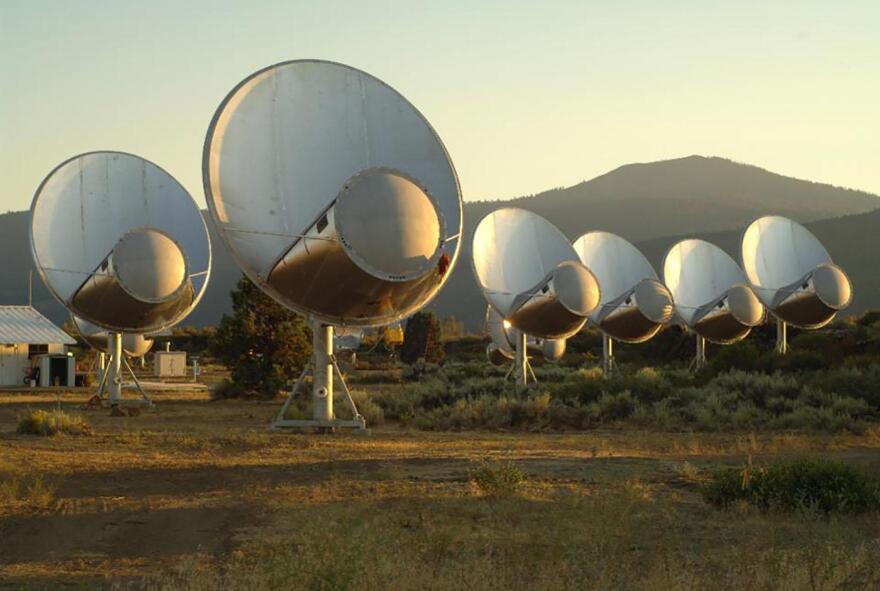Whales are helping in the search for alien life
Scientists are looking in our Earth’s oceans to try and communicate with extraterrestrials.
Researchers are studying humpback whales to see how whales communicate. The SETI Institute is hopeful in understanding how humans' communication with whales can help shape our plan to search for and make contact with extraterrestrial life.
In research conducted under a NOAA/National Marine Fisheries Servicespermit, Brenda McAllen, a core scientist and unit leader at the California National Primate Research Center, and Fred Sharp an investigator with the Alaska whale Foundation, spoke with one humpback whale.
“We actually targeted one whale and had a conversation with that particular whale, who was in proximity to where we were doing the playback but stayed for 20 minutes and exchanged vocalizations with us in a patterned way," McAllen said.
That is intriguing to scientists hoping to speak to non-humans off this planet like Laurance Doyle, a researcher at SETI.
“Intelligent species, non-human species will be curious and interested in making contact," Doyle said. "And everything we've recently come across, says humpback whales are curious and interested in making contact."
Are we alone in the universe?
The search for life in our universe has been an ongoing exploration, and a timeless question dating back thousands of years.
But scientists believe that humans are extremely close to making some form of contact with aliens, and finding data that proves it all.

Adam Frank, an astrophysicist and author of The Little Book of Aliens, said his book is to help people understand how close humanity is to finding data that proves life exists on other planets.
"I've been doing astronomy for 30 years studied everything from stars to how stars formed, to how planets lose their atmospheres," Frank said. "But the question of life in the universe is one that you can see the Greeks yelling at each other 2500 years ago, and people have been going at each other with just their opinions, for the rest of that time, up until like a few decades ago, that we actually had the capacity to start actually carrying forward a search."







